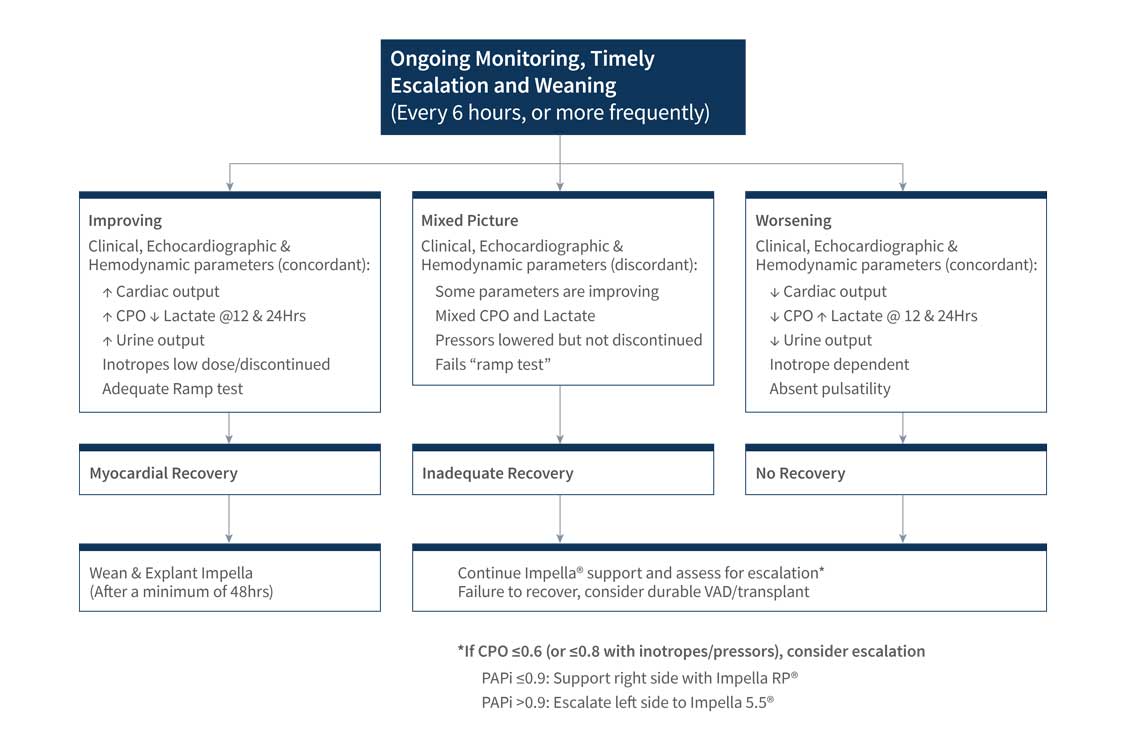Patient Identification
The Interdisciplinary Shock Team Is the Key to the Best Possible Clinical Outcome in Cardiogenic Shock
Early diagnosis, stabilisation, revascularisation and assessment of cardiac recovery are required in patients with cardiogenic shock. Protocols are increasingly being developed in facilities across the US and some hospitals have developed coordinated strategies, including the establishment of shock teams. These structures are being developed to represent best practices in trauma, STEMI and acute pulmonary embolism care. Shock teams should be multidisciplinary in structure and fully informed of the resources that the hospital can provide. If the hospital cannot offer early revascularisation for patients with cardiogenic shock, rapid transfer to a facility that can offer early revascularisation is recommended.
Additional Information

Best Practices in Cardiogenic Shock
Recently published studies have shown that implementing AMICS best practices can influence patient survival.1, 2, 3, 4
Early detection of cardiogenic shock and use of the Impella® heart pump prior to PCI within 90 minutes of the onset of shock
- Aggressive down-titration of inotropes
- Early detection and support of right ventricular dysfunction
- Identification and escalation in the case of inadequate left ventricular support
- Systematic use of right heart catheters to guide therapy

Which Patients Should be Considered for a Surgically-Inserted Impella® Heart Pump?
- Significant hemodynamic deficit
- Potential need to escalate support
Why Escalate?
- Unload the left ventricle
- Increase end organ perfusion
- Facilitate ambulation with axillary insertion of Impella 5.0® or Impella 5.5® with SmartAssist® heart pumps
What Escalation Strategies Can Increase Unloading?
Cardiothoracic surgeon Mark Anderson, MD, discussed how cardiac surgery can help bring the survival rate closer to the quality measure of ≥ 80% survival to discharge, as shown in the National Cardiogenic Shock Initiative (NCSI) study.
Structural Heart Disease – Innovative Approaches Extending Therapy Scope by Using pMCS Support
Dr. Schmack describes the surgical protocol at his institution for Impella 5.5® with SmartAssist® heart pump short-term pMCS for MV surgery and severely reduced LV function as well as plans for studies to demonstrate that it is possible to transform inoperable patients into appropriate patients for high-risk structural heart surgery supported with Impella 5.5® with SmartAssist® with improved outcomes and lasting results.
Additional Resources
References
- Tehrani BN, Truesdell AG, Sherwood MW, et al. Standardized team-based care for cardiogenic shock. J Am Coll Cardiol. 2019;73(13):1659-1669.
- O’Neill W. Achieving >70 % AMI-CS Survival: Best Practices from Around the World. Proceedings of the TCT Connect 2020 Oct 14-18 (Online); USA
- Basir B, et al. SCAI Scientific Session 2021.
- Sawa Y. Japanese Circulation Society, Kyoto. 2020.
Impella® Heart Pumps in Cardiac Surgery
NPS-2616



